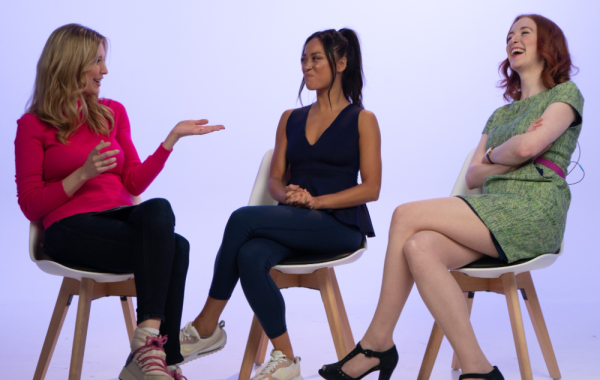I’m the manager of the Cheshire East Lifelong Learning team, managing a team of Functional Skills tutors in English, Maths and ICT, among others. I am also an adult numeracy tutor myself.
In Cheshire East we have about 3,000 learners and, as a key skill, numeracy is central to our offer and we teach learners with all levels of numeracy from pre-entry up to Level 2.
Recommending the National Numeracy Challenge to colleagues and learners
I’ve always kept tabs on the National Numeracy Challenge, and it’s improved immensely since I first came across it many years ago.
As soon as I saw the latest version I thought, ‘Right, get this out there as quickly as we can to all our learners.’
I told my team of tutors, ‘This is very good for initial assessment, very relaxing for learners and they can do it at their own pace and see how they feel.’
The feedback’s been very good. For me it’s straight forward and for the learners it’s practical, with easy access and it matches our Functional Skills curriculum.
There are a few fractions and decimals in there, often scary for some, but presented with practical examples such as calculating the number of tiles needed for a wall, calculating energy bills, and reading charts. For me, reading and understanding charts is probably one of the most essential skills we need these days.
Getting adults back into maths
When we meet a maths candidate for the first time, we sit them down and assess their existing maths skills. Often these questions stress people; perhaps they’ve not done maths for a long time, maybe they’re embarrassed that they don’t have a maths qualification or even that they remember poor experiences of maths in their earlier years.
We could make this experience worse if we then put them on a computer assessment programme which is very mathematically based, even scaring people away for good.
So we say, ‘Rather than that, have a go at this National Numeracy Challenge and see how you do. What score did you get?’ It’s a much easier way of getting people in there, especially those with little confidence.
That’s the hurdle we really want to get over: people who hate maths because of school, we want to get them back in and that’s an easy way of doing it – in their own time, at their own speed, when they want and in their own environment.
They can do the challenge on their phone, in the car while they’re waiting to come in. It’s just a much more relaxed way of doing assessments for them, and us.
Our aim at work is to get people to Level 2 Functional Skills Maths, English and ICT and into work and, if they’re in work, to get them further up their career ladder. Perhaps some have been made redundant and need a maths qualification to get them back into work, so we help them too.
The National Numeracy Challenge tutorials are clear and easy
I tested the National Numeracy Challenge thoroughly myself first, going through the whole range of questions and levels. I was very pleased to see the questions were iterative so if you did well they continued to challenge and if you did poorly they’d give you tutorials, that’s what I think is absolutely wonderful.
The tutorials are very clear and easy. And more than that, you can sit next to someone and help them go through them; they’re very clear for both a tutor and the learner. For self-practice or accompanied practice it’s very good indeed. I still use it myself now; I like to see what the new questions are.
The difference between maths and numeracy
I also think it’s important to differentiate between maths and numeracy, the terms are interchangeable, but I believe there is a big difference. I’ll give you an example.
In a GCSE Maths paper it may ask, ‘You have a triangle with angle x° and hypotenuse 10, calculate the length of the opposite side,’ and while it’s interesting maths, it’s not numeracy and I’ve never applied it in practice.
Numeracy is about practical, everyday useful skills and becoming confident in using them.
It’s dealing with real-life situations, such as looking at deals for your telephone or mortgage, knowing your budget while shopping and whether you’re being sold a pup or a really good bargain. You don’t always hone those skills with differentiating curves.
Thinking of trying the National Numeracy Challenge? Just give it a go!
To anyone thinking of trying the National Numeracy Challenge, I would say it’s a no-lose situation so just give it a go. Don’t be embarrassed, you’re not going to have a teacher from way back when saying: ‘That wasn’t very good, 3 out of 10. Must do better, stay behind.’ None of that! It’s very affirmative. It is approachable and friendly, just get stuck in.
There are loads of numeracy questions out there in real life. Martin Lewis is forever comparing things like premium bonds and savings accounts and that’s a practical application of money management. Numeracy is an enabler and at the moment with the cost-of-living crisis, money knowledge and competence is essential for a lot of people.
Photo credit: Fauxels, Pexels







